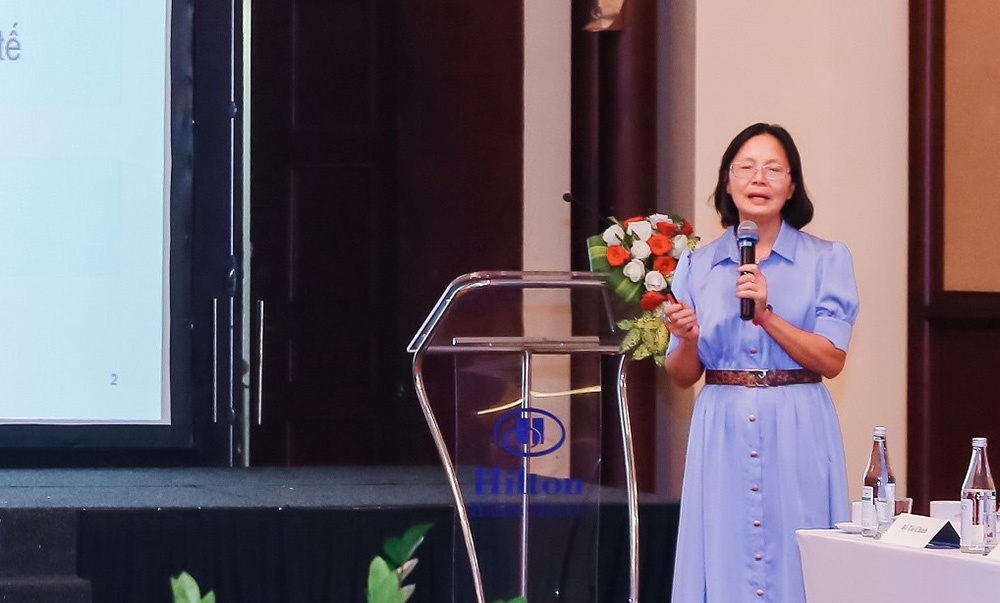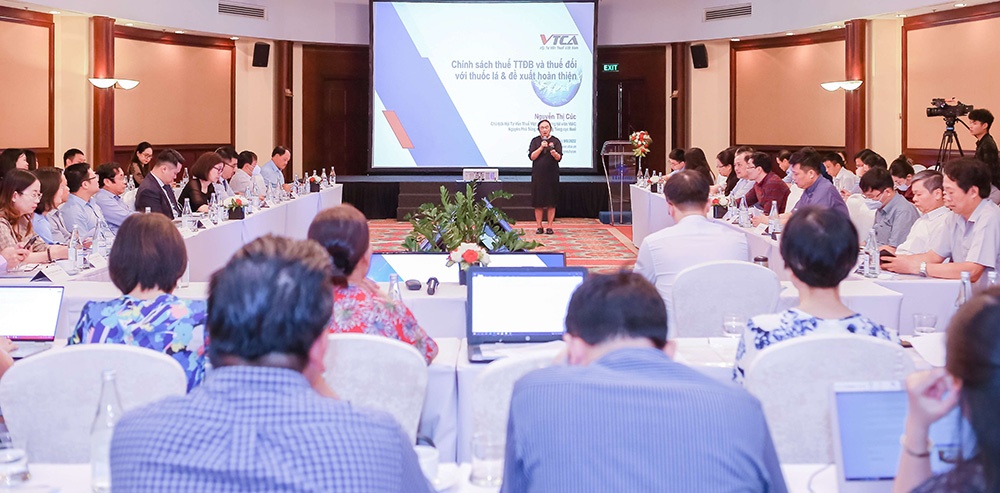Vietnam should embrace hybrid excise regime: report
PwC Vietnam has just published the report "Study on the excise tax system," asserting that the excise tax on cigarettes in Vietnam should be converted to a hybrid tax system.
A 2021 report by the WHO said that countries were tending to switch to applying the specific or hybrid excise tax structure (an increase of 22.5 per cent from 102 countries in 2008 to 125 countries in 2018, accounting for 69 per cent of the countries in the statistics). Meanwhile, the number of countries applying the ad valorem tax structure decreased by 25 per cent in the same period (from 55 countries to 41 countries).
According to the WHO, the tobacco tax policy design should prioritise simplicity. A single-tier absolute tax structure is the best because it can be easily adjusted regularly for inflation and income growth. Simplifying the excise tax structure on tobacco will facilitate tax administration, reduce tax avoidance and evasion opportunities, increase revenue, and have a greater impact on reducing tobacco use.
The WHO recommended that, in the future, countries that currently apply the ad valorem tax, like Vietnam, should first start transitioning to the mixed excise regime by adding a specific tax component or introducing a minimum special excise tax rate.
Meanwhile, countries adopting a hybrid system consisting of ad valorem tax and a specific tax should consider increasing the specific tax component frequently so that the specific tax component takes a larger portion of the total excise tax (before switching to a pure specific tax system).
 |
| PwC Vietnam affirms that a hybrid tax system that includes ad valorem and specific taxes is the most simple and effective |
Dinh Thi Quynh Van, general director of PwC Vietnam, said that, of the three methods of excise tax that are currently popular worldwide, the number of countries choosing specific tax makes up the most (66 countries), followed by mixed ones (61 countries) and ad valorem taxes (47 countries) as of 2018.
According to PwC Vietnam, in the long term, Vietnam should also focus on simplifying the tax structure as this lessens the administrative burden for the government, leads to more efficient tax collection and meets the government's objectives.
Roadmap for collecting excise taxes
Based on the analysis of the current excise tax policy of Vietnam, the government's objectives and the reference to the tax policies of some typical countries, the report of PwC Vietnam has outlined several options for SCT structure reform along with the implementation roadmap in the short-term and long-term.
The first option is transitioning into a hybrid tax system, then gradually increasing the specific component, decreasing the ad valorem component at an appropriate time, and moving to a single-tier specific tax system when suitable.
The second option is transiting from an ad valorem tax system to a multi-tier specific tax system based on the thresholds of ex-factory prices.
Each of the above options has its own advantages and disadvantages, but in general, PwC Vietnam believes that the first option is more reasonable for Vietnam. This is also consistent with the reform direction of the government.
At the Workshop "Special Consumption Tax - Harmonizing State Budget Revenue Regulation and Business Development” held in August 2022 in Hanoi, Nguyen Thi Cuc, chairwoman of Vietnam Tax Consultants Association, proposed that the tax increase on tobacco should follow a proper roadmap so that enterprises could adjust their operations and production would not suffer.
“That means in addition to the 75 per cent tax rate, the specific tax rate can be applied at VND1,000 per pack. Then it will be increased gradually from VND1,000 to VND1,500 per pack in the next two years. From the fifth year, it can be increased to VND2,000,” she added.
Although the hybrid excise regime is the best choice for Vietnam at the current time, over the long term however the specific tax is highly recommended.
In the long term, the PwC report suggested, Vietnam would gradually move towards a specific tax system after 10 or 15 years.
 |
| The Vietnam Tax Consultants Association proposed that the tax increase on tobacco should follow a proper roadmap |
The company said the specific excise tax regime is superior to the mixed or ad valorem regimes because the tax collection would be based on the volume of tobacco consumed.
It said that the specific tax structure also helps avoid the problem of significant differences between production and retail prices.
To smoothly change to the specific tax system, the Ministry of Finance should consider gradually increasing the specific tax component and reducing the relative tax component to encourage investment in improving product quality.
Then the difference in tobacco prices would gradually narrow, facilitating a switch to the specific excise tax regime when the time is right.
Van of PwC Vietnam said it was necessary to increase taxes according to a roadmap and with transparency. The increase should be higher than the inflation rate, and increasing the excise tax, especially on cigarettes, should be done step by step.
The plan to increase excise needs to have a reasonable roadmap and long-term orientation to achieve the government's target of limiting tobacco consumption but also ensure the stability of revenue collection and prevent a surge in smuggling, she said.
Vietnam has long borders with Cambodia and Laos, which makes it challenging to control smuggled cigarettes. According to the Asia Illegal Tobacco Index, in 2017 more than 24.3 billion illegal cigarettes were consumed in Vietnam, or 23.4 per cent of total consumption.
 | PwC survey featuring Vietnamese family businesses in COVID times The first report on family businesses in Vietnam by PwC has uncovered how these businesses are navigating the changing business and social environments. |
 | PwC report: Time needed to implement IFRS 17 has increased The second edition of PwC’s IFRS 17 Health Check Survey 2021: Asia-Pacific reveals that the proportion of respondents who are “mostly confident” to fully implement the reporting standard by the effective date has decreased to 35 per cent from 41 per cent in the previous year. |
What the stars mean:
★ Poor ★ ★ Promising ★★★ Good ★★★★ Very good ★★★★★ Exceptional
Related Contents
Latest News
More News
- A golden time to shine within ASEAN (February 19, 2026 | 20:22)
- Vietnam’s pivotal year for advancing sustainability (February 19, 2026 | 08:44)
- Strengthening the core role of industry and trade (February 19, 2026 | 08:35)
- Future orientations for healthcare improvements (February 19, 2026 | 08:29)
- Infrastructure orientations suitable for a new chapter (February 19, 2026 | 08:15)
- Innovation breakthroughs that can elevate the nation (February 19, 2026 | 08:08)
- ABB Robotics hosts SOMA Value Provider Conference in Vietnam (February 19, 2026 | 08:00)
- Entire financial sector steps firmly into a new spring (February 17, 2026 | 13:40)
- Digital security fundamental for better and faster decision-making (February 13, 2026 | 10:50)
- Aircraft makers urge out-the-box thinking (February 13, 2026 | 10:39)

 Tag:
Tag:


















 Mobile Version
Mobile Version